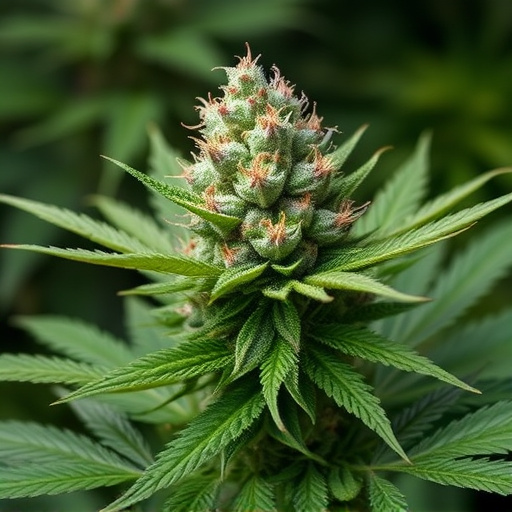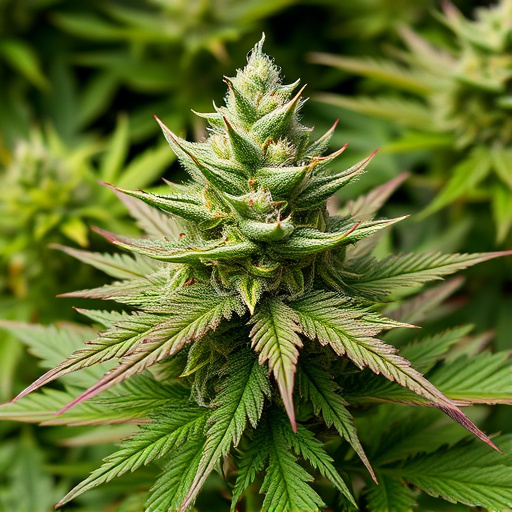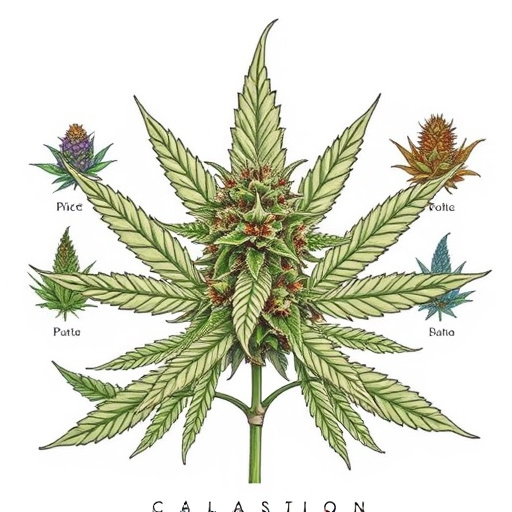Smoking classic cannabis strains, popular for their high THC content, carries significant health risks, particularly for mental and respiratory health. Regular use can worsen anxiety and depression, impact cognitive functions like memory and attention, especially in adolescents, and increase the risk of developing mental health issues over time. These strains' potent effects may lead to respiratory problems such as asthma and bronchitis, cardiovascular strain, and cognitive impairment, underscoring the importance of understanding these risks before cannabis use.
“Curious about the side effects of smoking weed? While many advocate for its therapeutic benefits, especially with popular classic cannabis strains, it’s crucial to understand the potential drawbacks. This article explores the often-overlooked impacts on mental and physical health. From anxiety and depression to respiratory issues and cardiovascular risks, we delve into the cognitive impact, including memory loss and attention deficit. By understanding these side effects, users can make informed decisions regarding their cannabis consumption.”
- Mental Health Implications: Anxiety and Depression
- Physical Health Concerns: Respiratory Issues and Cardiovascular Risks
- Cognitive Impact: Memory Loss and Attention Deficit
Mental Health Implications: Anxiety and Depression

Smoking weed, or using cannabis, has been linked to potential mental health implications, particularly for individuals with pre-existing conditions like anxiety and depression. While some users claim that specific classic cannabis strains provide temporary relief from symptoms, scientific research suggests a more complex relationship. Regular marijuana use can disrupt the balance of neurotransmitters in the brain, leading to or exacerbating anxiety disorders. The impact is especially significant for those who start using cannabis at a young age, as it may increase the risk of developing mental health issues over time.
Depression is another concern, as studies have shown a correlation between marijuana use and depressive symptoms, particularly in individuals with genetic predispositions. Certain strains known for their high THC content, often sought after for their relaxing effects, can trigger or worsen feelings of despair and hopelessness. Understanding these mental health implications is crucial when considering the use of cannabis, especially given the wide variety of classic strains available.
Physical Health Concerns: Respiratory Issues and Cardiovascular Risks

Smoking weed, or cannabis, can have significant physical health concerns, particularly related to respiratory and cardiovascular systems. The act of inhaling smoke introduces various harmful substances into the body, leading to potential long-term issues. Classic cannabis strains, known for their high THC content, may exacerbate existing respiratory conditions such as asthma or bronchitis. The irritant properties of smoke can trigger coughing fits, wheezing, and even chronic obstructive pulmonary disease (COPD) over time.
Additionally, cardiovascular risks are associated with regular cannabis use. Studies suggest that smoking weed can increase heart rate and blood pressure, putting a strain on the heart. This effect may be more pronounced in individuals with pre-existing heart conditions. The impact of cannabinoids on vascular health is still being researched, but evidence indicates that frequent use could contribute to atherosclerosis (hardening and narrowing of arteries) and other cardiovascular complications.
Cognitive Impact: Memory Loss and Attention Deficit

Smoking weed, or using cannabis, can have significant impacts on cognitive functions, particularly memory and attention. Studies have shown that regular use, especially of classic cannabis strains with high THC levels, can lead to short-term memory loss and difficulties concentrating. The effects may be more pronounced in young people, as their brains are still developing. Research suggests that frequent cannabis consumption during adolescence can disrupt the normal development of brain regions responsible for memory and executive functions.
These cognitive impairments can manifest as challenges with learning new information, reduced ability to focus on tasks, and even an increased risk of developing attention deficit disorders. While some users claim that cannabis enhances creativity and relaxation, the potential drawbacks on mental clarity and academic or professional performance cannot be overlooked, especially when it comes to classic strains known for their potent effects.
While classic cannabis strains offer potential therapeutic benefits, it’s crucial to be aware of their side effects. Mentally, they can exacerbate anxiety and depression; physically, they pose risks to respiratory health and cardiovascular systems. Cognitively, regular use may lead to memory loss and attention deficit. Understanding these implications is essential for responsible usage, especially when considering the popularity of cannabis products like those derived from classic strains.














